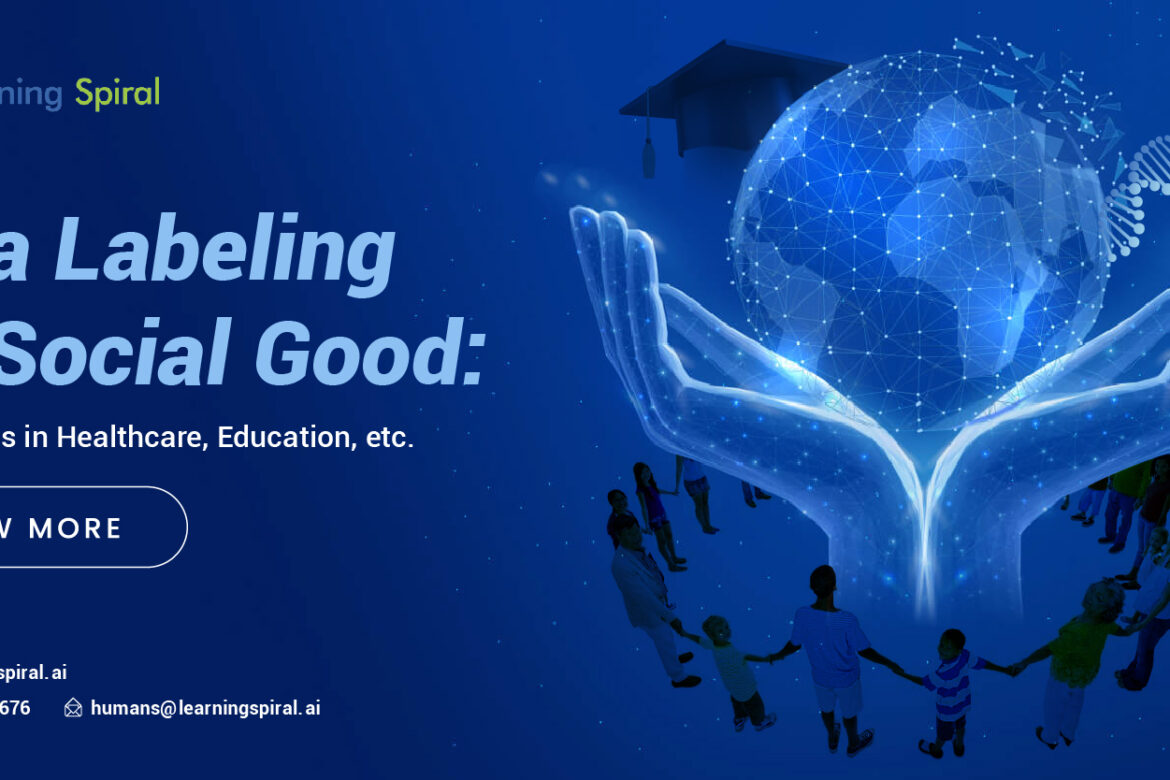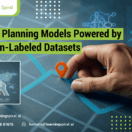The world faces complex challenges in healthcare, education, and environmental sustainability. Artificial intelligence (AI) has the potential to be a powerful tool in addressing these issues, but its effectiveness hinges on the quality of data used to train its algorithms.
This is where data labeling comes in, playing a crucial role in empowering AI for social good.

What is Data Labeling for Social Good?
Data labeling involves meticulously tagging data (text, images, audio) with relevant information. In the context of social good, this data can encompass medical scans, educational content, or environmental observations. By labeling this data with specific categories and classifications, AI models learn to identify patterns and make predictions that can be used to:
- Advance Healthcare:
Labeled medical images like X-rays and CT scans can be used to train AI models for early disease detection, personalized treatment plans, and drug discovery. Accurate labeling of patient data can help AI identify subtle anomalies that might escape the human eye. - Revolutionize Education:
Labeled educational content, including text, audio, and video lectures, can be used to develop AI-powered tutoring systems that personalize learning experiences. Labeling student responses with performance levels can help AI tutors adapt to individual learning styles and provide targeted feedback. - Combat Climate Change:
Labeled environmental data, such as satellite imagery and sensor readings, can be used to train AI models for tasks like deforestation detection, weather prediction, and pollution monitoring. Precisely labeling images of land cover types allows AI to track changes in forests and identify areas at risk of deforestation.
The Benefits of Data Labeling for Social Good
Data labeling for social good goes beyond just technological advancements. It offers several key benefits:
- Improved Efficiency:
AI models trained on labeled data can automate tasks currently performed by humans, freeing up resources for other critical activities. For instance, AI-powered medical diagnosis can reduce waiting times for patients and allow doctors to focus on complex cases. - Enhanced Accessibility:
AI-powered solutions can make essential services more accessible to underserved communities. For example, AI tutors can provide personalized learning support to students in remote areas with limited access to qualified teachers. - Data-Driven Decisions:
Insights derived from labeled data can inform better decision-making in the social sector. Labeled environmental data can help policymakers formulate targeted environmental protection strategies.
Challenges and Considerations
While data labeling for social good holds immense promise, it faces certain challenges:
- Data Bias: Labeled data can perpetuate existing biases if not carefully curated. It’s crucial to ensure diversity in the data and the labeling workforce to avoid creating AI models with discriminatory tendencies.
- Data Privacy: Data labeling often involves sensitive information. Robust security measures and adherence to data privacy regulations are essential to protect individual privacy.
- Resource Constraints: Creating high-quality labeled datasets can be expensive and time-consuming. Exploring innovative labeling techniques and leveraging citizen science initiatives can help address these resource constraints.
The Future of Data Labeling for Social Good
As technology evolves, data labeling for social good will continue to play a vital role in advancing AI solutions for global challenges. Here are some promising trends:
- Automated Labeling Tools: The development of AI-powered tools to assist with the labeling process can improve efficiency and accuracy.
- Crowd-Sourced Labeling: Platforms that allow individuals to contribute to labeling tasks can help create diverse and comprehensive datasets.
- Focus on Explainability: Developing AI models that can explain their reasoning will foster trust and transparency in AI-data solutions for social good.
Conclusion
Data labeling for social good is not just about creating powerful AI models; it’s about harnessing technology to create a better future. By addressing the challenges and embracing innovative approaches, data labeling can unlock the full potential of AI to tackle some of the world’s most pressing issues. As we move forward, ethical considerations and responsible data practices must remain at the forefront to ensure AI truly serves the greater good.




